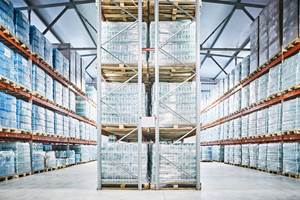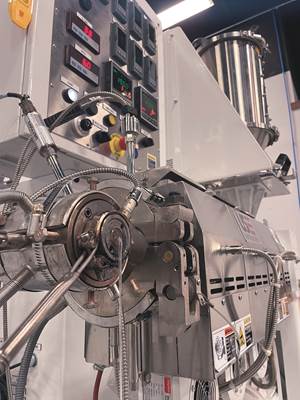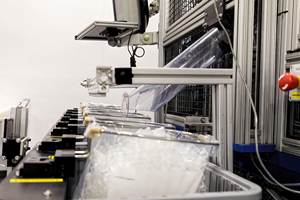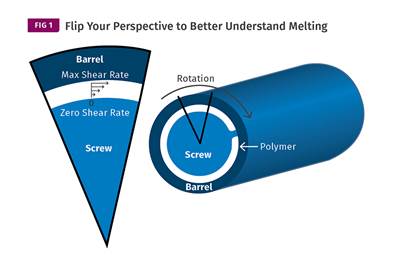Are You Ready to Take on the World?
Editorial
Plastics Technology’s exclusive benchmarking study reveals the tactics of processors who just might be in that class.
Our cover story this month reports on an exclusive—and exhaustive—benchmarking study Plastics Technology conducted last year in an effort to define just what makes up a world-class plastics processing operation. At a time when more plastics processors are competing globally—and looking for ways to differentiate what they do from others—establishing a best-in-class processing operation is perhaps more important than ever.
I encourage you to turn to click here to read this report, written by Senior Editor Tony Deligio. Maybe—just maybe—your first reaction will be: “Why is my company not among those listed there as a World-Class Processor?” My first question to you would be, “Did you participate in the survey?” We sent it out by email several times to our subscriber base, with a link to an online survey. Some 116 processors replied. Considering that we are all inundated with emails, and this is the first time we have done this type of research, that’s not a bad level of response. That said, I don’t consider it good enough. Obviously, the greater the number of firms that respond to a survey of any kind, the more credible the data.
We’ll be doing this survey on a yearly basis, so if you didn’t respond last year I encourage you to do so this year. You don’t have to divulge your company’s identity. Some 21 out of the 25 processors identified as world class elected to make themselves known this time around. To be honest, I’m a bit mystified as why anyone would want to be secretive about being a best-in class operation. This industry could stand for a bit more chest thumping. And wouldn’t that “World-Class Processor” designation be a useful credential when your OEM customers put projects out to bid? Wouldn’t it be a good thing to even put such a designation on your own website?
Anyhow, Tony’s article lays out the methodology we employed to determine the cream of the crop—11 metrics covering operations, business performance, and human resources. Those measures included everything from scrap and on-time delivery rates to employee turnover and sales growth. The article is loaded with tables comparing how World-Class Processors stand up against all processors surveyed on the basis of these measurables.
Here are some of the results from the study that I found particularly interesting:
• World-Class Processors run fewer pounds of materials overall, but use more different kinds, including more reclaimed in-house scrap. The message? If you’re a custom processor, focus on flexibility and efficiency.
• World-Class Processors also have significantly fewer total active customers. Does this run counter to being flexible? As Tony points out, it suggests a focus on quality of clients vs. quantity. Another way to look at it, perhaps: Don’t try to be all things to all people.
• World-Class Processors have a higher on-time delivery rate and lower accident rate. More examples of efficiency in action and understanding the reality that a safe operation is a productive operation.
• World-Class Processors offer value-added services. Message: They strive to be solutions providers for their customers, not parts makers.
• World-Class Processors make more use of process or production monitoring software. If you do something well, measure it so you can make it repeatable.
• World-Class Processors reinvest more revenue into capital equipment. Top processors keep abreast of new technology and realize the payoff, whether it’s through reducing scrap, cutting energy bills, or improving yield.
Please be on the lookout for an email linking you to our next survey. It’s scheduled to go out next month.
Related Content
New Cap for Child-Resistant Pill Bottles Is Senior-Friendly & Saves Resin
Exclusive lightweight cap design can be removed simply pushing down on the center. No gripping or twisting needed.
Read MoreArtificial Intelligence Enables Smarter Sourcing
Westfall Technik has adopted Arkestro’s predictive procurement software to wring savings and more reliable deliveries from a historically challenging supply chain.
Read MoreCatheter Specialist Finds Sweet Spot Serving Small, Medium-Sized Concerns
Medical-component specialist LightningCath has carved a niche meeting the needs of small to medium-sized entrepreneurs with complex catheter designs … quickly.
Read MoreAs Currier Grows in Medical Consumables, Blow Molding Is Its ‘Foot in the Door’
Currier Plastics has added substantial capacity recently in both injection and blow molding for medical/pharmaceutical products, including several machines to occupy a new, large clean room.
Read MoreRead Next
People 4.0 – How to Get Buy-In from Your Staff for Industry 4.0 Systems
Implementing a production monitoring system as the foundation of a ‘smart factory’ is about integrating people with new technology as much as it is about integrating machines and computers. Here are tips from a company that has gone through the process.
Read MoreAdvanced Recycling: Beyond Pyrolysis
Consumer-product brand owners increasingly see advanced chemical recycling as a necessary complement to mechanical recycling if they are to meet ambitious goals for a circular economy in the next decade. Dozens of technology providers are developing new technologies to overcome the limitations of existing pyrolysis methods and to commercialize various alternative approaches to chemical recycling of plastics.
Read MoreUnderstanding Melting in Single-Screw Extruders
You can better visualize the melting process by “flipping” the observation point so that the barrel appears to be turning clockwise around a stationary screw.
Read More























